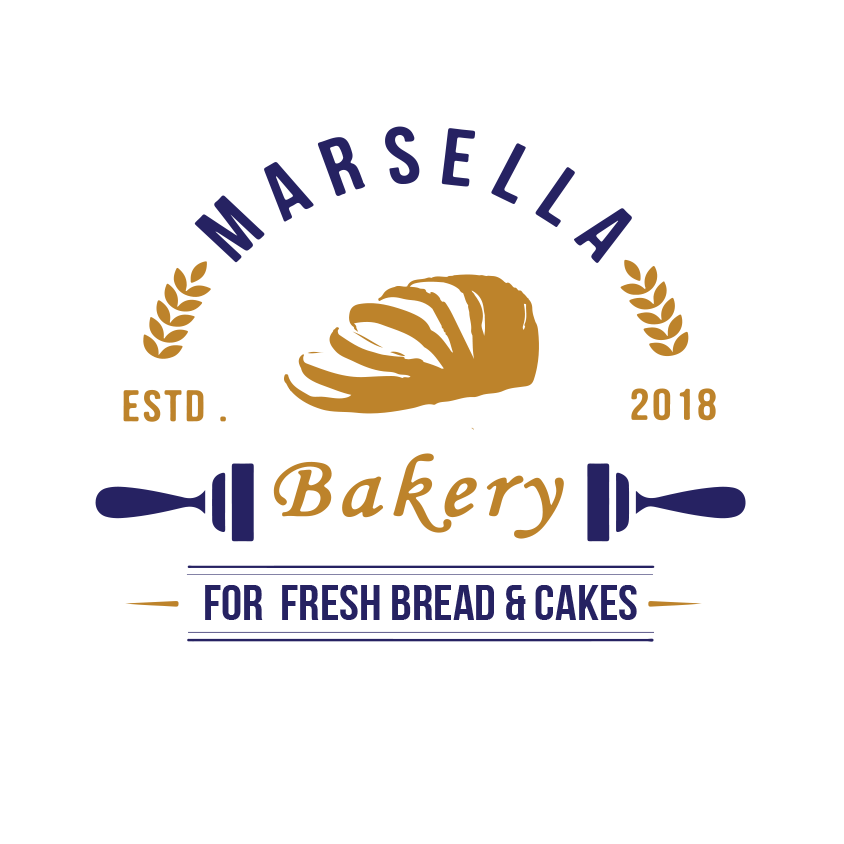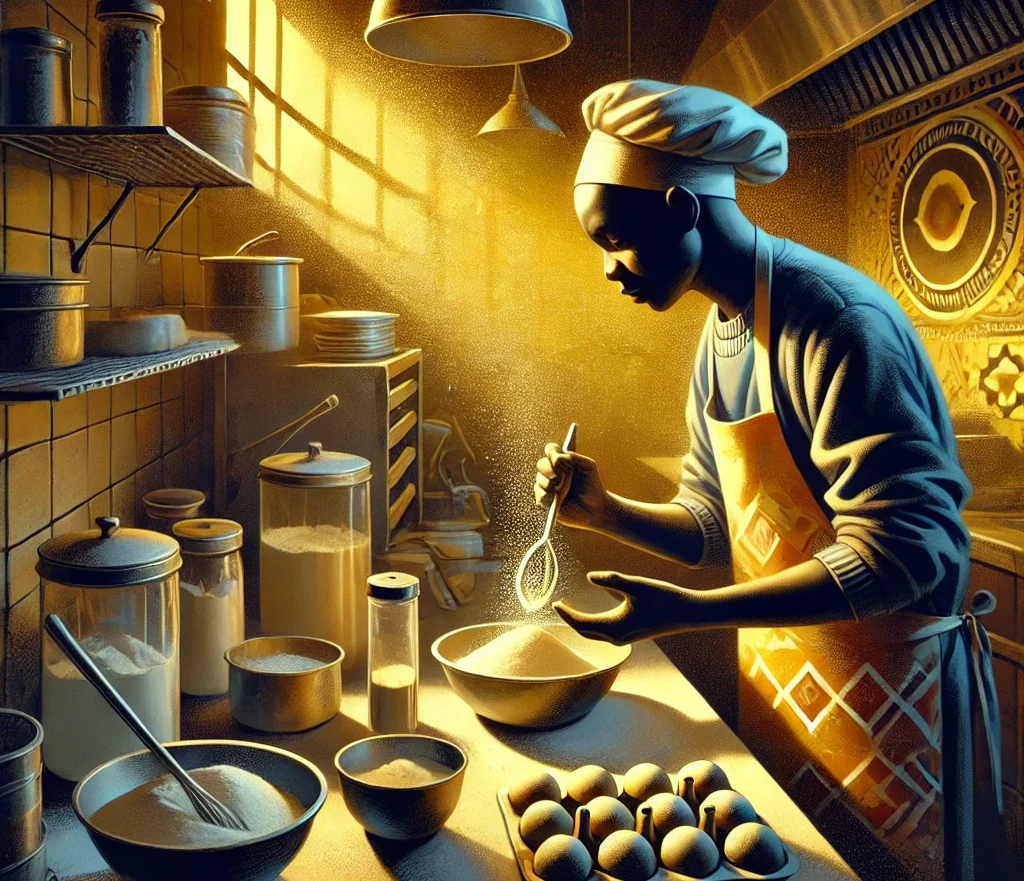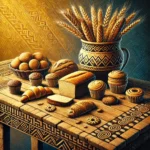1. Early Morning Preparations
1.1 Waking up before dawn
The day of a Kenyan baker commences well before the first rays of sunlight grace the horizon. At approximately 3:30 AM, the baker’s alarm signals the start of a new day. This early rising is essential to ensure fresh bread and pastries are ready for the morning rush.
1.2 Preparing the bakery workspace
Upon arrival at the bakery, typically around 4:00 AM, the baker’s first task is to meticulously clean and sanitize all work surfaces. This includes wiping down countertops, organizing baking tools, and ensuring all equipment is in proper working order.
1.3 Checking inventory and ingredients
A thorough inventory check is conducted to confirm the availability of all necessary ingredients. This involves assessing flour quantities, yeast supplies, and various other components required for the day’s baking schedule.
2. The Art of Dough Making
2.1 Mixing and kneading traditional Kenyan bread
The process of creating traditional Kenyan bread, such as the popular ‘ngumu’ or ‘obusuma’, begins with carefully measuring and mixing ingredients. The baker employs time-honored techniques passed down through generations to achieve the perfect consistency.
2.2 Proofing techniques for various baked goods
Different baked goods require specific proofing methods. The baker must carefully monitor temperature and humidity levels to ensure optimal rising conditions for items ranging from soft dinner rolls to dense, hearty loaves.
2.3 Managing multiple dough types simultaneously
Efficiency is key in a busy Kenyan bakery. The baker must skillfully juggle various dough preparations, each at different stages of the baking process, to maintain a steady flow of fresh products throughout the day.
3. Baking Process and Equipment
3.1 Firing up the ovens and managing temperatures
The baker begins preheating ovens at precisely calibrated temperatures for different products. This may involve using traditional wood-fired ovens or modern electric models, depending on the bakery’s resources and clientele preferences.
3.2 Timing and rotating baked goods for perfection
Achieving consistent results requires meticulous attention to baking times and oven dynamics. The baker must rotate trays and adjust temperatures as needed to ensure even browning and proper texture across all products.
3.3 Maintaining and cleaning baking equipment
Regular maintenance of baking equipment is crucial for both efficiency and food safety. The baker allocates time throughout the day for cleaning mixers, scrapers, and baking trays, as well as performing routine checks on larger appliances.
4. Local Flavors and Specialties
4.1 Incorporating indigenous Kenyan ingredients
To cater to local tastes and celebrate Kenyan culinary heritage, the baker incorporates indigenous ingredients such as millet, sorghum, and cassava into various recipes. This not only enhances flavor profiles but also supports local agricultural practices.
4.2 Creating fusion pastries with global influences
In response to evolving consumer preferences, the Kenyan baker often experiments with fusion recipes that blend traditional flavors with international influences. This might include creating pastries that combine local fruits with European baking techniques.
4.3 Adapting recipes for dietary restrictions
To accommodate diverse dietary needs, the baker develops alternatives for customers with specific requirements. This includes gluten-free options, sugar-free variants, and vegan-friendly baked goods that maintain the essence of traditional Kenyan flavors.
5. Customer Interactions and Sales
5.1 Opening the bakery and welcoming early customers
As dawn breaks, the baker prepares to greet the first customers of the day. This often includes local residents seeking fresh bread for breakfast and workers purchasing pastries for their morning commute.
5.2 Managing rush hours and large orders
The baker must efficiently handle peak hours, typically occurring during breakfast and lunch periods. This involves coordinating with staff to ensure prompt service and managing large orders from local businesses or events.
5.3 Building relationships with regular patrons
Fostering a sense of community is integral to the success of a Kenyan bakery. The baker takes time to engage with regular customers, remembering their preferences and occasionally offering samples of new creations to gather feedback.
6. Afternoon Preparations and Restocking
6.1 Baking fresh batches for evening sales
As the day progresses, the baker prepares additional batches of popular items to meet afternoon and evening demand. This ensures a consistent supply of fresh products throughout the bakery’s operating hours.
6.2 Inventory management and supplier communications
Maintaining adequate stock levels requires ongoing communication with suppliers. The baker reviews inventory and places orders for ingredients and packaging materials as needed to sustain operations.
6.3 Planning for special orders and events
Attention is given to upcoming special orders or events, such as weddings or corporate functions. The baker allocates resources and plans production schedules to accommodate these additional commitments without disrupting regular operations.
7. Closing Time and Reflection
7.1 End-of-day cleaning and organization
As the bakery’s hours conclude, typically around 7:00 PM, the baker oversees a thorough cleaning of the premises. This involves sanitizing all surfaces, properly storing ingredients, and preparing the space for the next day’s operations.
7.2 Reviewing sales and planning for tomorrow
The baker analyzes the day’s sales data to identify trends and adjust production plans accordingly. This information guides decisions on which items to prioritize or modify in future baking schedules.
7.3 Personal time and professional development
After a long day of work, the baker allocates time for personal activities and continued learning. This may include researching new baking techniques, experimenting with recipes, or attending industry workshops to stay current with emerging trends in the field.
Summary
The life of a Kenyan baker is characterized by dedication, precision, and a deep connection to both tradition and innovation. From the predawn hours to late evening, each day presents a unique set of challenges and opportunities. The baker’s role extends beyond mere food production, encompassing aspects of cultural preservation, community building, and entrepreneurship. Through their craft, Kenyan bakers not only provide sustenance but also contribute to the rich tapestry of the nation’s culinary heritage.
FAQs
What are the most popular baked goods in Kenya?
Popular baked goods in Kenya include mandazi (a type of fried bread), chapati (flatbread), and various forms of bread such as white and whole wheat loaves.
How do Kenyan bakers adapt to power outages or equipment failures?
Many Kenyan bakers maintain traditional wood-fired ovens as backups and are skilled in manual mixing techniques to ensure production can continue during power outages or equipment malfunctions.
What training is required to become a professional baker in Kenya?
While formal culinary education is available, many Kenyan bakers learn through apprenticeships or family traditions. Some may also attend vocational training programs focused on baking and pastry arts.
How do seasonal changes affect a Kenyan baker’s daily routine?
Seasonal variations influence ingredient availability and customer preferences. Bakers adjust their product offerings and production schedules to accommodate these changes, often incorporating seasonal fruits and grains into their recipes.
What are the biggest challenges facing Kenyan bakers today?
Kenyan bakers face challenges such as fluctuating ingredient costs, increasing competition from large-scale industrial bakeries, and the need to balance traditional methods with modern consumer demands for healthier or more diverse options.











